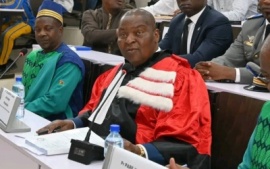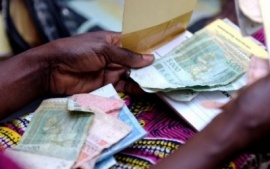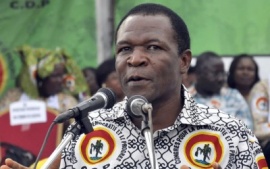
MADRID, June 1 — A day after agreeing to accept back hundreds of its citizens who have been streaming illegally into Spain in recent weeks, the government of Senegal suspended the agreement today, because of reports that the deportees were being mistreated by Spanish authorities, a Spanish diplomat said.
According to Spanish news agencies, officials in Dakar, the capital of Senegal, said that many of the migrants who were deported from Spain on Wednesday were handcuffed by Spanish police and were tricked into believing they were being moved to other places within Spain rather than back to Senegal.
 The Spanish diplomat, who spoke only on the condition that he not be named because he lacks authority to comment publicly about government business, said that the Senegalese government had expressed its commitment to resolving the issue as soon as possible, so that the repatriations could resume.
The Spanish diplomat, who spoke only on the condition that he not be named because he lacks authority to comment publicly about government business, said that the Senegalese government had expressed its commitment to resolving the issue as soon as possible, so that the repatriations could resume.
He said that Bernardino León, Spain's deputy foreign minister, would travel to Dakar on Friday to meet with Senegalese leaders.
The Spanish police, who are responsible for dealing with illegal immigrants, issued a statement today denying that deportees had been mistreated.
"The repatriation of the Senegalese citizens has been carried out in accordance with all the legal requirements and the habitual security procedures associated with this type of action," the statement said. Moreover, it said, they were treated with "a scrupulous respect for the individual rights of all of those involved."
The Senegalese Embassy in Madrid declined to answer questions about the matter.
Record numbers of migrants from sub-Saharan Africa have been arriving this year in the Canary Islands, a Spanish territory in the Atlantic Ocean off Morocco, on boats from Africa's western coast — most recently from Senegal, about 900 miles away from the islands.
More than 8,000 illegal immigrants have landed in the Canaries so far this year, nearly twice the figure for all of 2005. It is unclear how many of them are Senegalese, since nearly all try to hide their nationality from the Spanish authorities in the hope of avoiding deportation.
"The repatriation process is very complicated," the Spanish diplomat said. "You must identify them, put them on the planes that take them back home — and they don't want to help you do either."
The Spanish government said on Wednesday that Senegal had agreed to accept the return of some 600 migrants, their nationality apparently confirmed by Senegalese diplomats who visited detention camps in the Canary Islands where illegal immigrants are held.
Before the announcement, Senegal had been reluctant to accept any deportees, because the country's economy depends heavily on remittances sent home by Senegalese migrants who find work in Europe. Their departure also eases competition for scarce jobs at home, and when they eventually return, they often carry with them useful new skills learned in Europe, many African governments say.
Senegal has said it would accept more repatriations from Spain if it also received more economic assistance, like help modernizing irrigation systems to create additional farming jobs.
































0 Commentaires
Participer à la Discussion